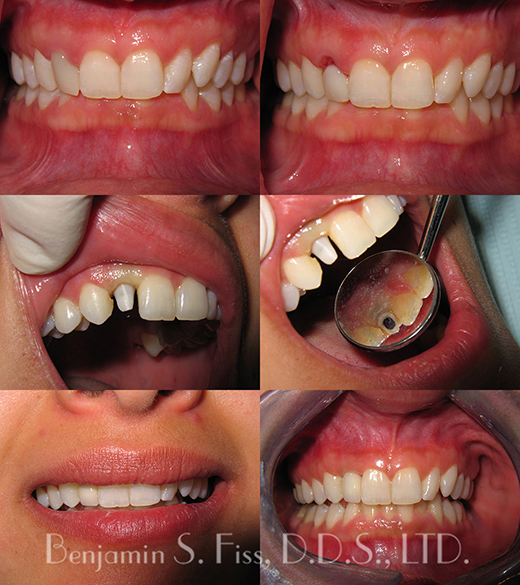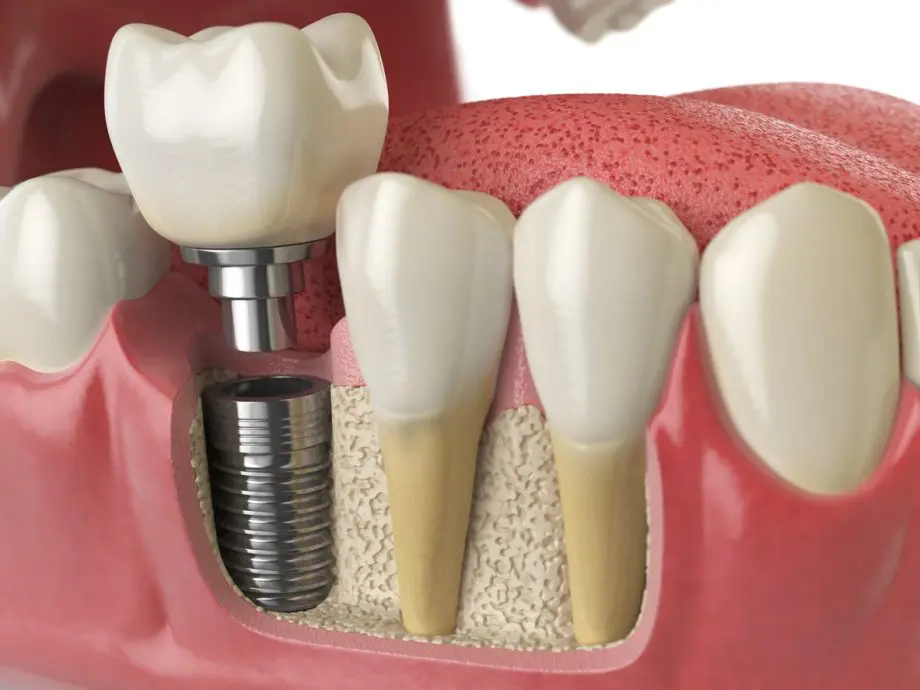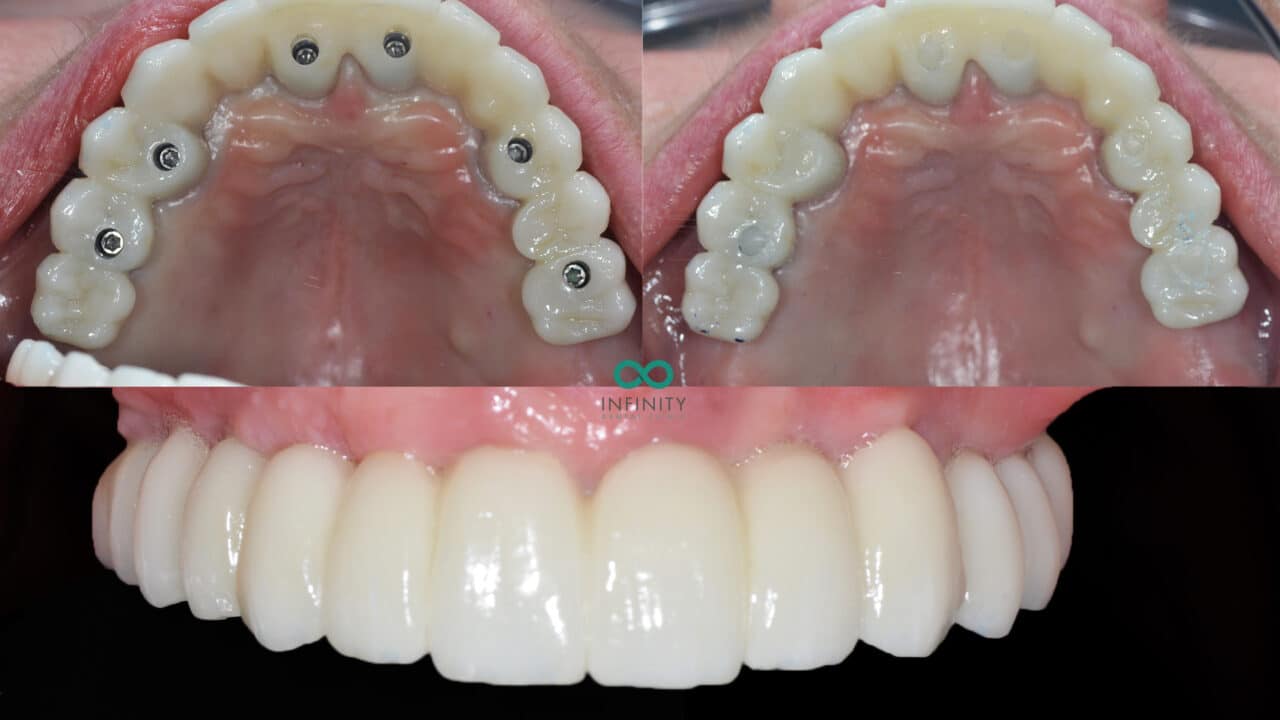Family Dental Clinic Pataskala OH Dental Implants: Services and Expertise
Family Dental Clinic Pataskala OH Dental Implants: Services and Expertise
Blog Article
Dentists Sunbury OH Frequently Asked Questions About Dental Implants
Dental implants have emerged as a preferred choice for individuals seeking a long-term resolution to tooth loss. One important side of understanding dental implants includes their effect on adjacent teeth. This is especially important for making certain the health and longevity of the whole dental structure.
When a dental implant is positioned, it mimics the perform of a natural tooth root. By doing so, it helps maintain the integrity of the surrounding bone structure. Natural teeth depend on a balanced, interconnected system for support, and dental implants can contribute positively to that dynamic. The stability supplied by the implant allows for better distribution of chew forces, which can prevent undue stress on adjacent teeth.
Dental Center Hartford OH What Are Dental Implants? Types, Benefits, and More
In instances where a tooth is missing, the neighboring teeth may shift into the vacant space. This shifting can lead to misalignment and varied other complications. By putting a dental implant, the chance of this shifting is lowered, as the implant acts as a placeholder that preserves the natural alignment of surrounding teeth. This preventive effect is crucial for long-term oral health and performance.
Another necessary consideration is bone loss. When a tooth is misplaced, the jawbone in the area can start to deteriorate due to a scarcity of stimulation. Dental implants help prevent this bone loss by providing the mandatory stimulation to the jawbone, very similar to a natural tooth root would. This preservation of bone not only helps the implant itself but additionally contributes to the stability of adjacent teeth.
The sort of fabric used in dental implants, sometimes titanium, has a unique property of osseointegration, that means it fuses with the bone over time. This integration provides a sturdy foundation for the bogus tooth while ensuring that the implant doesn’t negatively affect surrounding buildings. As the implant integrates, it creates an environment that contributes positively to the health of the adjacent teeth.

Regular dental check-ups play an important position in monitoring the impact of dental implants on adjacent teeth. Professional assessments might help determine any points that may arise, ensuring immediate therapy and maintaining the health of the complete dental arch. These evaluations may include X-rays to verify for bone density and the overall condition of the implant and surrounding teeth.
Dentist Granville OH Dental Implant Procedure: What You Need to Know Before Surgery
Oral hygiene practices are vital for individuals with dental implants. Proper brushing and flossing habits not solely contribute to the longevity of the implant but additionally ensure that adjacent teeth stay wholesome. Food particles and plaque that accumulate across the implant may cause problems, together with peri-implantitis, an inflammatory condition that can have an effect on surrounding teeth and tissues.
The positioning of dental implants can affect the health of adjacent teeth. If an implant is placed at an angle or not correctly aligned, it might lead to elevated stress on neighboring teeth. This misalignment might cause put on and tear on adjacent enamel, probably leading to cavities or different dental issues. Therefore, the talent and expertise of the dentist performing the implant procedure are paramount in reaching a successful consequence.
In some instances, further procedures could also be necessary to arrange the surrounding area for an implant. Bone grafting or sinus lifts may help create a better surroundings for the implant. While these procedures are geared toward enhancing the location for the implant, additionally they serve to protect the health of adjacent teeth by making a more secure basis.
Johnstown Dental Pataskala OH Dental Implants: Options, Costs, and Care

As dental know-how evolves, advancements in implant strategies lead to better outcomes. Improved imaging techniques and computer-aided design enable for more precise placements that decrease risk to adjacent teeth. With these advancements, the probability of complications that could arise from improperly placed implants diminishes considerably.
Post-operative care also plays a crucial role in making certain that adjacent teeth remain unaffected. Patients must adhere to the dentist's directions concerning food plan, oral hygiene, and follow-up visits. Neglecting these tips could lead to issues that impression not only the implant but also the neighboring teeth.
Smile Care Columbus OH Permanent Dental Implants
In conclusion, dental implants, when positioned appropriately and cared for properly, have the potential to enhance the health of adjacent teeth quite than detract from it. They keep alignment, stimulate bone growth, and provide a secure basis that helps the complete dental structure. Understanding how dental implants affect adjacent teeth emphasizes their importance as a long-term tooth replacement solution. With continuous developments in know-how and strategies, the combination of dental implants into restorative dentistry is changing into increasingly successful, ensuring wholesome and functional smiles for years to come.

- Dental implants prevent adjacent teeth from shifting into the hole created by a missing tooth, serving to to maintain up proper alignment within the mouth.
- The rebuilding of the jawbone by way of an implant can stimulate surrounding teeth and maintain them healthy by offering needed bone density which may otherwise diminish.
- Adjacent teeth profit from the stabilization that dental implants provide, reducing the chance of wear and tear and tear from misalignment during chewing.
- Implants can defend adjacent teeth by acting as a framework, which might distribute bite forces evenly throughout the dental arch as an alternative of placing undue stress on neighboring teeth.
- When positioned appropriately, dental implants decrease the danger of gum disease which might have an effect on adjacent teeth by maintaining a clear and healthy gum line.
- The presence of an implant can facilitate an improved oral hygiene routine, because it eliminates the need for bridgework that might entice food particles round adjacent teeth.
- Regular dental check-ups can reveal how well the implant integrates with surrounding structures, ensuring ongoing health for adjacent teeth.
- Implants can prevent the natural means of bone resorption that occurs after tooth loss, positively impacting the steadiness and longevity of adjacent teeth.
- The use of dental implants may scale back the need for extra invasive procedures sooner or later, offering a long-term answer that maintains the structure of the whole dental arch.
- Successful integration of an implant into the dental arch enhances general oral perform, usually leading to improved confidence and oral health for adjacent teeth.undefinedHow do dental implants affect adjacent teeth?
What influence do dental implants have on the alignment of adjacent teeth?
Dental implants usually prevent the shifting of adjacent teeth, helping to maintain up proper alignment. This stability can reduce the risk of developing chunk points over time.
Can dental implants trigger injury to close by teeth?
When placed correctly by a qualified skilled, dental implants mustn't injury adjacent teeth - Pediatric Dentist Columbus OH. However, improper placement or insufficient planning may lead to complications
Smile Care Galena OH What Are Dental Implants? Types, Benefits, and More
Do dental implants require any special care regarding adjacent teeth?
Maintaining good oral hygiene is essential. Surrounding teeth must be brushed and flossed often, and routine dental check-ups will assist ensure that both the implants and adjacent teeth remain healthy.

Will dental implants impression the health of my surrounding teeth?
Dental implants can enhance the health of surrounding teeth by distributing chunk forces evenly, reducing wear and tear. Additionally, they'll prevent bone loss within the jaw, which might affect adjacent teeth.
Dental Implants Galena OH Dental Implants: Options, Costs, and Care
Are there any long-term results of browse around these guys dental implants on close by teeth?
Long-term, dental implants might help preserve the health of adjacent teeth by stopping shifting and potential gum points, ultimately contributing to higher oral health total. - Dental Care Associate Pataskala OH
Can gum problems arise round adjacent teeth after getting implants?
If proper dental care is uncared for, gum points may develop round both the implants and adjacent teeth. Following post-operative care directions is essential to reduce these risks.
Dental Care Columbus OH Dental Implant Surgery: Procedure, Recovery, and What to Expect
How do dental implants compare to bridges by method of adjacent teeth?
Dental implants are usually helpful as they don’t require alteration of adjacent teeth, not like bridges, which necessitate reshaping of nearby teeth for support. (Premier Dental New Albany OH)
Can I still get check this site out cavities in adjacent teeth if I have dental implants?
Yes, adjacent teeth can still develop cavities if not properly cared for. Dental implants themselves cannot get cavities, but they require vigilant hygiene practices to protect surrounding natural teeth.
What is read here the success rate of dental implants in relation to surrounding teeth?
The success rate of dental implants is high, however it largely is dependent upon the quality of the procedure and ongoing care. Well-maintained implants often lead to better outcomes for adjacent teeth as nicely.